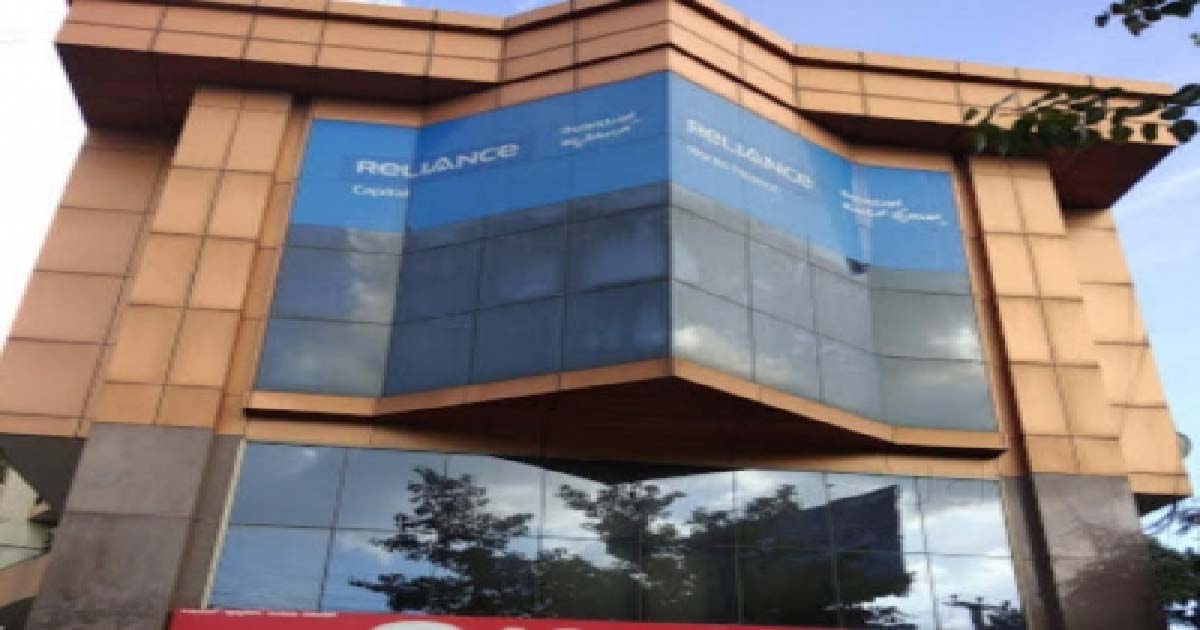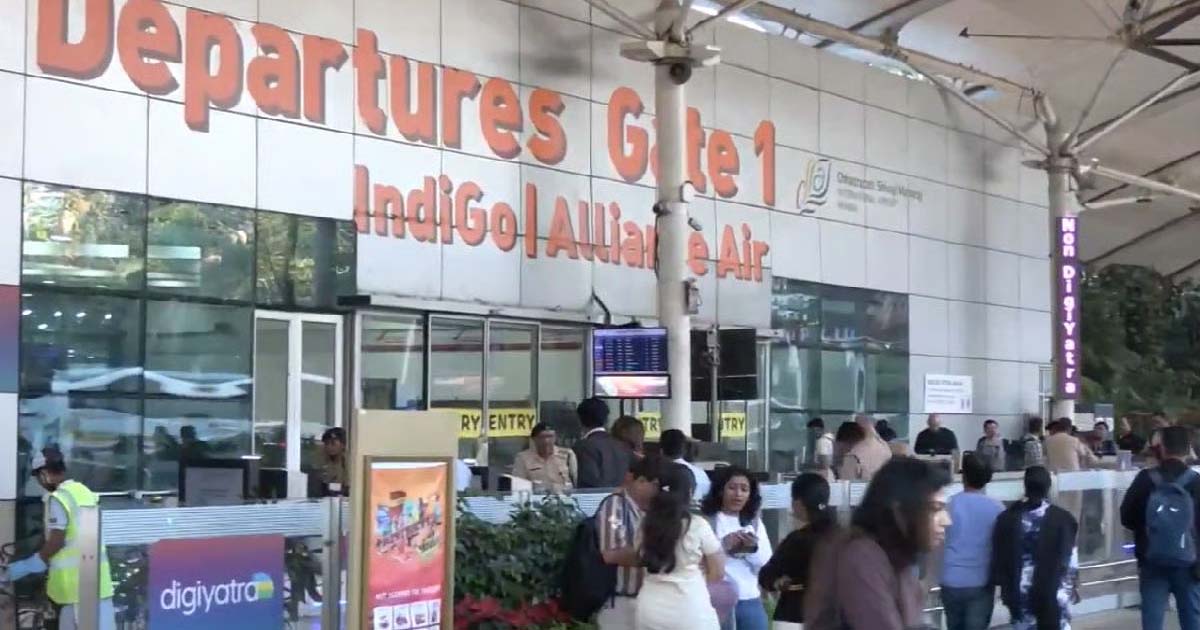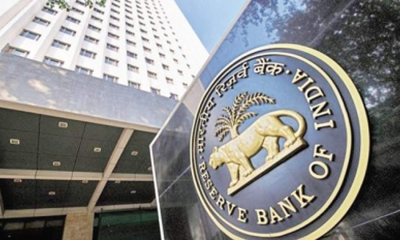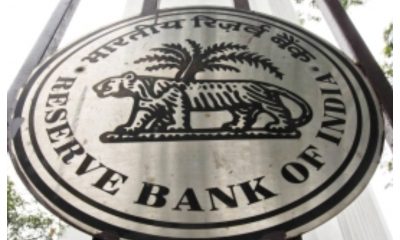Business
RBI’s MPC is expected to begin raising key lending rate from April
The RBI’s MPC is expected to begin raising the key lending rate from its next review meeting in April, Crisil Research said.
Notably, the Reserve Bank of India’s Monetary Policy Committee (MPC) on February 10, retained key short-term lending rates during the sixth and final monetary policy review of FY22.
Besides, the growth-oriented accommodative stance was also retained to give a push to economic activity.
The MPC of the central bank maintained the repo rate, or short-term lending rate, for commercial banks, at 4 per cent.
Likewise, the reverse repo rate was kept unchanged at 3.35 per cent, and the marginal standing facility (MSF) rate and the ‘Bank Rate’ at 4.25 per cent.
“Risks have increased from the external front. First, Brent crude prices have jumped from $74.3 per barrel on average in December 2021 to over $90 now,” it said.
Moreover, Crisil Research expects Brent crude prices to average $80-85 in 2022, the highest since 2015.
“Elevated crude oil prices have an adverse impact on India’s macros such as the current account deficit, inflation, GDP growth, and in some cases, the fiscal deficit.”
In the past, the RBI has raised rates when crude oil prices rose, such as in 2010, 2011 and 2018.
“Second, the US Federal Reserve is expected to raise its policy rate at the fastest pace seen after the ‘Global Financial Crisis’.”
“The Fed will have taken seven years after the ‘Global Financial Crisis’ to raise its funds rate for the first time, and two years after Covid-19 pandemic began. The projected number of hikes in 2022 are also much higher than seen at the peak of Fed tightening after the aGlobal Financial Crisis’.”
Interestingly, peak tightening in 2018 had coincided with repo rate hikes by the RBI.
Furthermore, it cited that primary target of RBI, CPI inflation, remains within its comfort band of 2-6 per cent.
“However, it faces upside risks from rising crude oil prices. This is expected to be partially offset by lower excise duties on fuel compared with last year.”
“Meanwhile, we believe firms facing sustained cost pressure would pass it on to a great extent to consumers next fiscal as demand strengthens.”
As per Crisil Research, a modest reduction is expected in CPI inflation from 5.5 per cent this fiscal to 5.2 per cent in the next.
“Summing up, we expect the MPC to begin raising the repo rate from its next review meeting in April.”
“Following that, we expect two more hikes of 25 bps each next fiscal, which will take repo rate to 4.75 per cent by March 2023.”
Business
CBI books Reliance Commercial Finance, its promoters in Rs 57.47 crore bank fraud case

Mumbai, Dec 9: The Central Bureau of Investigation (CBI) on Tuesday said it has filed a criminal case against Reliance Commercial Finance Ltd (RCFL) and its promoters and directors over allegedly causing wrongful loss of Rs 57.47 crore to Bank of Maharashtra.
The case has been registered against RCFL — a company of Reliance ADA Group, its promoters/directors and unknown bank officials, on the allegations of criminal conspiracy, cheating and criminal misconduct and thereby, the CBI said in a statement.
According to the statement, the loan account of Reliance Commercial Finance Ltd was declared an NPA by the bank on March 25, 2020 and also as fraud on October 4, 2025, for causing wrongful loss of Rs 57.47 crore to Bank of Maharashtra.
“RCFL was availing loans to the tune of Rs 9,280 crore from 31 banks/ FIs/NBFCs/Corporate Bodies, etc., including Bank of Maharashtra. A thorough investigation will be conducted into the allegations of defrauding all the banks/FIs, etc. by the accused company,” said the CBI.
The probe agency obtained search warrants from the court of a Special CBI judge, Mumbai and commenced searches at the official premises of RCFL at Mumbai and the residential premises of Devang Pravin Mody, Director of the company, at Pune, on December 9.
“Several incriminating documents have been observed and are being taken into possession during searches. Searches are in progress,” the CBI said.
Meanwhile, the Enforcement Directorate (ED) has filed a supplementary charge sheet against Reliance Power Ltd and 10 others, in the case of fake bank guarantees of Rs 68 crore submitted by Reliance Power Limited to the Solar Energy Corporation of India (SECI) for the purpose of securing a tender issued by it. ED attached the proceeds of crime worth Rs 5.15 crore as well.
Reliance Power Ltd said in a statement that “ED allegations have not yet passed through judicial scrutiny and the Company has not been held guilty of any wrongdoing”.
“As per law settled by the Supreme Court, the company will get an opportunity to put across its case and facts before the court, even before cognisance, so filing of this complaint does not affect the affairs of the company in any manner,” said the company in an exchange filing.
Business
IndiGo Crisis Day 8: Mumbai Hit Hard As Flight Chaos Enters Day 8; Over 30 Cancellations Snarl City’s Air Travel

Mumbai: air travel operations remained disrupted on Tuesday as IndiGo’s nationwide aviation crisis stretched into its eighth consecutive day, causing large-scale cancellations and commuter chaos across the country. But Mumbai, one of IndiGo’s busiest and most critical hubs, continued to bear a brunt of the meltdown, with passengers facing uncertain schedules and repeated last-minute cancellations.
By 9:30 am, Chhatrapati Shivaji Maharaj International Airport had already logged 31 IndiGo cancellations, including 14 inbound flights and 17 outbound departures. Long queues, anxious passengers and repeated rescheduling announcements dominated Terminal 2 through the morning peak hours, leaving thousands scrambling to adjust their plans.
Across India, more than 200 IndiGo flights were cancelled today. Bengaluru topped the list with 121 cancellations, followed by Hyderabad (58), Chennai (41) and Kerala with four. But for Mumbai passengers, many of whom rely on IndiGo for frequent business and leisure travel, the interruptions continued to be especially disruptive.
The turmoil, which began last Tuesday, has snowballed into a full-blown operational crisis. Over 4,500 flights have been cancelled between last week and Monday. Even though IndiGo claimed on Sunday that operations were ‘stabilising,’ the airline saw over 500 fresh cancellations on Monday alone, leaving passengers stranded overnight at multiple airports, including Mumbai.
The root of IndiGo’s meltdown has been linked to the airline’s inability to implement the second phase of India’s updated Flight Duty Time Limitations (FDTL), which came into effect in November. The revised norms, aimed at cutting pilot fatigue and extending rest periods, required IndiGo to restructure crew rosters. However, the airline has reportedly been struggling with a pilot shortage, leading to a mismatch between the new regulations and its available manpower.
To reduce pressure on airlines and mitigate the ongoing disruption, aviation regulator DGCA temporarily relaxed certain night-duty and weekly rest requirements for pilots. This relaxation is expected to help airlines stabilise operations through emergency rostering flexibility.
Civil Aviation Minister Ram Mohan Naidu told Parliament that IndiGo did not raise any concerns during a crucial meeting on December 1, just a day before the cancellations spiralled. He attributed the chaos to the airline’s internal system rather than regulatory pressure.
The government has now decided to sharply cut IndiGo’s winter schedule. The airline, which operates 2,200 flights a day and commands nearly 60 per cent of the domestic market, will see its schedule curtailed, with several routes handed to other carriers to prevent further passenger inconvenience.
Business
LT Foods drops over 6.5 pc, other Indian rice stocks also slide

Mumbai, Dec 9: Shares of leading Indian rice companies fell sharply on Tuesday, after US President Donald Trump hinted that he may impose fresh tariffs on agricultural imports, specifically targeting Indian rice and Canadian fertilisers.
The statement triggered immediate selling in stocks linked to the rice trade. LT Foods was the biggest loser, with its share price slipping 6.85 per cent to Rs 366.55.
Shares of KRBL also declined, falling 1.14 per cent, while GRM Overseas dropped 4.46 per cent.
The sudden slide reflected investor concerns that any new US tariffs could hurt export demand and impact earnings for these companies.
Trump made his remarks during a White House event where he announced new support measures for US farmers.
His comments come at a time when trade tensions between the United States and India continue to resurface.
India remains the world’s largest rice producer, with an output of 150 million tonnes and a 28 per cent share in global production.
It is also the top exporter, accounting for 30.3 per cent of global rice exports in 2024–2025, data from the Indian Rice Exporters Federation showed.
Despite this large global presence, India’s rice exports to the US are relatively small.
According to the India Brand Equity Foundation, India shipped around 234,000 tonnes of rice to the US in the 2024 financial year, which is less than 5 per cent of its total global basmati exports of 5.24 million tonnes.
West Asian countries remain the biggest buyers of Indian rice. Among the varieties exported worldwide, the Sona Masoori variety is especially popular in markets like the US and Australia.
The US, under Trump’s leadership, has already imposed steep tariffs on India, including a 50 per cent tariff — its highest — along with a 25 per cent levy on India’s Russian oil imports.
-

 Crime3 years ago
Crime3 years agoClass 10 student jumps to death in Jaipur
-

 Maharashtra1 year ago
Maharashtra1 year agoMumbai Local Train Update: Central Railway’s New Timetable Comes Into Effect; Check Full List Of Revised Timings & Stations
-

 Maharashtra1 year ago
Maharashtra1 year agoMumbai To Go Toll-Free Tonight! Maharashtra Govt Announces Complete Toll Waiver For Light Motor Vehicles At All 5 Entry Points Of City
-

 Maharashtra1 year ago
Maharashtra1 year agoFalse photo of Imtiaz Jaleel’s rally, exposing the fooling conspiracy
-

 National News1 year ago
National News1 year agoMinistry of Railways rolls out Special Drive 4.0 with focus on digitisation, cleanliness, inclusiveness and grievance redressal
-

 Maharashtra1 year ago
Maharashtra1 year agoMaharashtra Elections 2024: Mumbai Metro & BEST Services Extended Till Midnight On Voting Day
-

 National News1 year ago
National News1 year agoJ&K: 4 Jawans Killed, 28 Injured After Bus Carrying BSF Personnel For Poll Duty Falls Into Gorge In Budgam; Terrifying Visuals Surface
-

 Crime1 year ago
Crime1 year agoBaba Siddique Murder: Mumbai Police Unable To Get Lawrence Bishnoi Custody Due To Home Ministry Order, Says Report


















